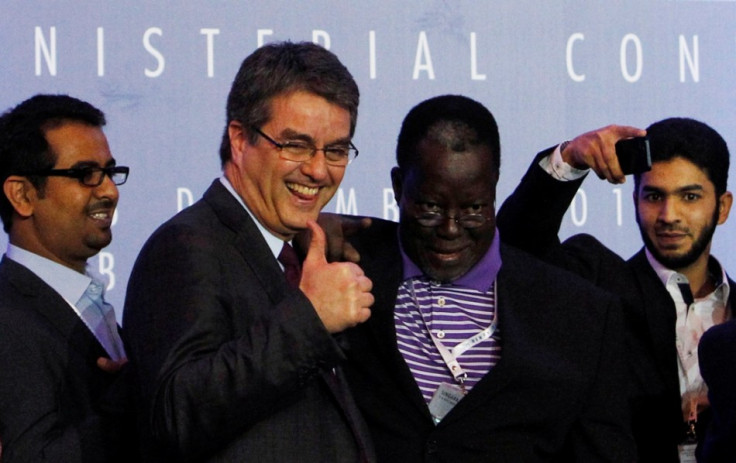Protectionism Growing Among the G20 as Global Trade Continues Slow Recovery

Protectionism among the G20 is ongoing, as world trade continues to make a gradual recovery from the global financial crisis.
G20 members introduced 112 new trade restrictions in the six months to May 2014. Over the same period, members introduced 93 trade liberalising measures, showing that new protectionist policy is outweighing free trade policy among the world's most dominant economies.
While the figure was slightly down from the 116 measures introduced in the previous six months, WTO chief Roberto Azevêdo said the trend "will not help our efforts to support growth and development around the world — and therefore we must remain watchful".
Since 2008, the 20 member states have introduced 1,185 trade-restrictive measures, covering 4.1% of world merchandise imports, a regular monitoring report by the WTO, G20 and OECD found.
"The multilateral trading system remains the best defence against protectionism and an important driver of economic growth, sustainable recovery and development," said the report, which called on WTO members to deliver on the decisions reached at the Bali round of free trade negotiations.
In Bali last December, WTO members reached a trade agreement in the ninth round of the Doha Development Round which would see member states lowering tariffs and agricultural subsidies, as well as introducing trade facilitation measures in an effort to boost world trade.
"One way to reverse this trend is to make progress on the WTO's post-Bali agenda, aiming at two things: full implementation of the Bali decisions and rapid conclusion of the Doha round negotiations. On these issues, as on so many others, the leadership of the G-20 will be essential," Azevêdo said.
The report found that world trade volumes are rising, but have yet to reach the 20-year average of 6% from before the financial crash.
Trade is forecast to grow at 4.7% this year and 5.3% in 2015. Trade volume growth in emerging economies will continue to outstrip growth in developed markets, but the gap will narrow from its three-to-one peak in 2012.
Talks over a number of wide-reaching free trade agreements involving the G20 are ongoing, most notably the Transatlantic Trade and Investment Partnership (TTIP) and the Trans-Pacific Partnership (TPP).
Australia's trade minister said yesterday that he hoped TPP could be settled before the US presidential elections got underway in 2015. Andrew Robb told a conference in Canberra: "I think this year's out. I mean, we'll keep negotiating, there's quite a momentum I feel and we are .... over 80% of the way."
© Copyright IBTimes 2025. All rights reserved.






















